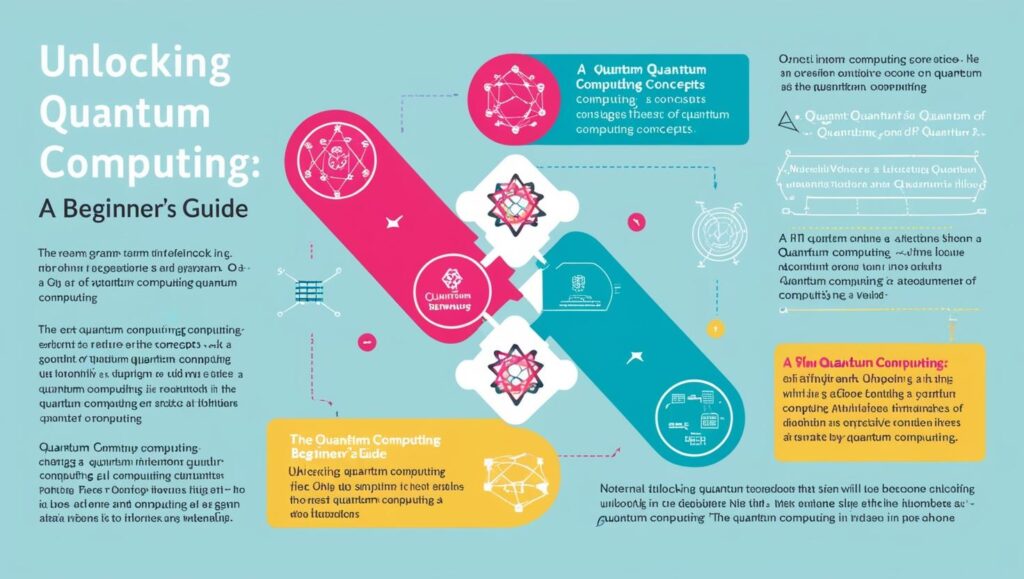Quantum computing is poised to revolutionize the technological landscape with its potential to solve problems that are currently unsolvable by classical computers. While the concept might seem daunting, understanding its basics opens up a world of possibilities. This guide aims to demystify quantum computing, making it accessible to beginners and providing insights into this cutting-edge field.
Demystifying Quantum Computing for Beginners
Quantum computing is fundamentally different from classical computing, which relies on bits as the smallest unit of data, existing as either a 0 or a 1. In contrast, quantum computers use quantum bits, or qubits, which can exist simultaneously in multiple states thanks to the principles of quantum superposition. This means that qubits can perform complex calculations at speeds exponentially greater than traditional bits, making quantum computers incredibly powerful for certain tasks.
Another key feature of quantum computing is entanglement, a quantum phenomenon where qubits become interconnected in such a way that the state of one qubit can directly affect the state of another, regardless of distance. This interconnectedness allows quantum computers to process information in ways that classical computers cannot, potentially leading to breakthroughs in fields such as cryptography, material science, and complex system simulations.
However, harnessing the power of quantum computing is not without its challenges. The delicate nature of qubits, which are prone to errors due to environmental interference, requires sophisticated error-correction techniques and extremely controlled environments to maintain stability. Understanding these foundational concepts is crucial for beginners as they venture into the world of quantum computing, where the laws of quantum mechanics reign supreme.
A New Era of Computing Power Unveiled
The advent of quantum computing represents a new era in computing power, promising to solve complex problems that were previously deemed impossible. Industries ranging from pharmaceuticals to logistics are looking at quantum computing to optimize their operations. For instance, quantum algorithms could drastically reduce the time required for drug discovery by simulating molecular interactions at an unprecedented level of detail.
Despite being in its nascent stages, the potential applications of quantum computing are vast. Financial institutions could leverage quantum algorithms to improve risk analysis and portfolio optimization, while artificial intelligence could see leaps in capability through enhanced data processing and machine learning models. As such, many tech giants and startups are investing heavily in quantum research and development, racing to achieve quantum supremacy — the point at which quantum computers outperform classical systems in solving practical problems.
Nevertheless, the transition to a quantum future is still in development, and widespread adoption will take time. Researchers are actively working on overcoming current limitations, such as qubit stability and error rates, to make quantum computing more practical and accessible. As progress continues, this groundbreaking technology will gradually integrate into various sectors, unlocking new possibilities and transforming industries in ways yet to be imagined.
While quantum computing is still evolving, its potential to revolutionize technology is undeniable. By understanding its fundamental principles and the challenges it faces, beginners can appreciate the transformative power quantum computing holds. As research and development continue, the journey toward unlocking quantum computing will undoubtedly lead to groundbreaking discoveries and innovations that redefine the boundaries of human capability.


